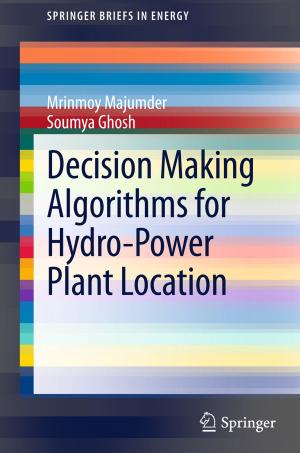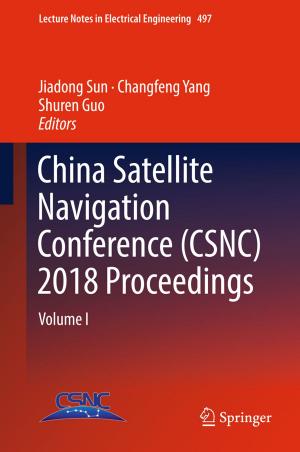Electromagnetic Field Theories for Engineering
Nonfiction, Science & Nature, Technology, Microwaves, Telecommunications| Author: | Md. Abdus Salam | ISBN: | 9789814585668 |
| Publisher: | Springer Singapore | Publication: | April 3, 2014 |
| Imprint: | Springer | Language: | English |
| Author: | Md. Abdus Salam |
| ISBN: | 9789814585668 |
| Publisher: | Springer Singapore |
| Publication: | April 3, 2014 |
| Imprint: | Springer |
| Language: | English |
A four year Electrical and Electronic engineering curriculum normally contains two modules of electromagnetic field theories during the first two years. However, some curricula do not have enough slots to accommodate the two modules. This book, Electromagnetic Field Theories, is designed for Electrical and Electronic engineering undergraduate students to provide fundamental knowledge of electromagnetic fields and waves in a structured manner. A comprehensive fundamental knowledge of electric and magnetic fields is required to understand the working principles of generators, motors and transformers. This knowledge is also necessary to analyze transmission lines, substations, insulator flashover mechanism, transient phenomena, etc. Recently, academics and researches are working for sending electrical power to a remote area by designing a suitable antenna. In this case, the knowledge of electromagnetic fields is considered as important tool.
A four year Electrical and Electronic engineering curriculum normally contains two modules of electromagnetic field theories during the first two years. However, some curricula do not have enough slots to accommodate the two modules. This book, Electromagnetic Field Theories, is designed for Electrical and Electronic engineering undergraduate students to provide fundamental knowledge of electromagnetic fields and waves in a structured manner. A comprehensive fundamental knowledge of electric and magnetic fields is required to understand the working principles of generators, motors and transformers. This knowledge is also necessary to analyze transmission lines, substations, insulator flashover mechanism, transient phenomena, etc. Recently, academics and researches are working for sending electrical power to a remote area by designing a suitable antenna. In this case, the knowledge of electromagnetic fields is considered as important tool.















